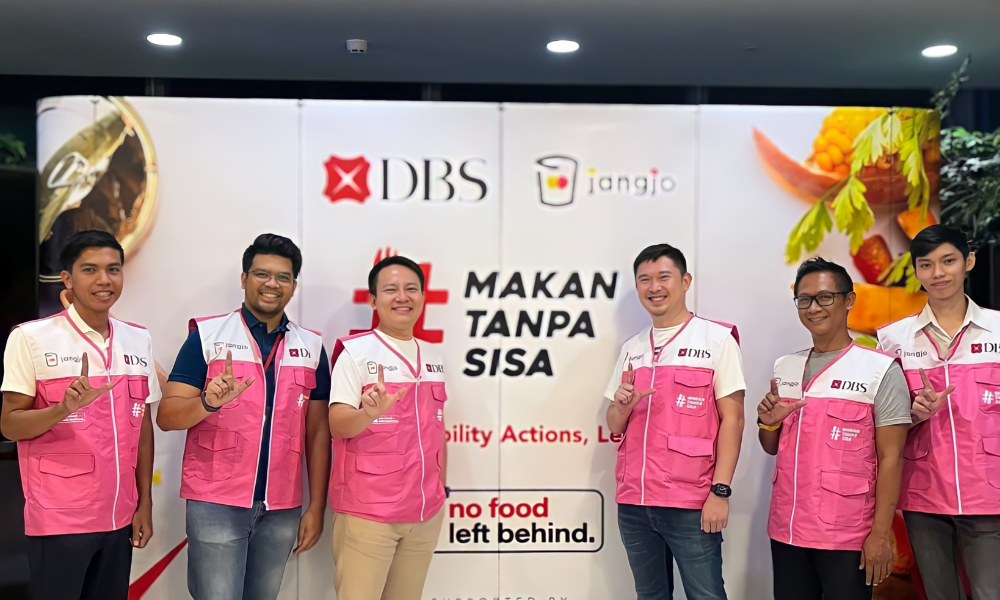DBS Bank Collaborates with Jangjo for #MakanTanpaSisa
Bank DBS Indonesia is collaborating with a waste management startup (Jangjo) to address the problem of food waste in commercial areas such as shopping centers and restaurants in the DKI Jakarta and South Tangerang areas by implementing a circular economy concept waste management system.
The Ministry of Environment and Forestry (KLHK) noted that organic waste and food waste dominate the amount of waste in Indonesia, which is 40.8 percent or around 19.5 million tons in 2022. Household waste is the largest contributor with a composition of 39.2 percent. , and followed by trade centers 21.2 percent.
Head of Group Strategic Marketing & Communications PT Bank DBS Indonesia Mona Monika said, with the high amount of food waste that threatens the environment, Bank DBS Indonesia has initiated the ESG program, ‘Towards Zero Food Waste’ or MakanTanpaSisa since 2020.
“The MakanTanpaSisa Movement works with various partners to reduce food waste so it doesn’t end up in landfills (TPA). In 2022, we managed to save around 56,596 kg of food impact, an increase of 241 percent compared to 2021,” said Monika in Jakarta, Wednesday (12/4/2023).
Founder & Chief Executive Officer of Jangjo Teknologi Indonesia Joe Hansen said, food waste, especially in urban areas, often escapes the public’s attention, even though food waste accounts for more than 50 percent of the existing waste composition.
He said, most food waste is generated from several points of shopping centers and hotels where there are many food and beverage businesses. For this reason, Jangjo also cooperates with 300 restaurant brands including shopping centers such as Plaza Indonesia, PIK Avenue, Mall of Indonesia (MOI) to Ashta.
Joe said, from processing one ton of leftovers per day from that location, his party targets the additional processing of food waste to reach 10 tons per day. That way, it can cut 48,000 kg of methane gas, and reduce the amount of food waste in the commercial area of the Jangjo operational area in general by up to 50 percent.
“We have a vision to create a sustainable life for the wider community and the environment. With Bank DBS Indonesia collaborating Jangjo, this #MakanTanpaSisa movement is expected to increase the capacity to process food waste with a target of 10 tons per day,” said Joe.
This article is from Kompas.com
Author: Kiki Safitri
Editor : Aprilia Ika

